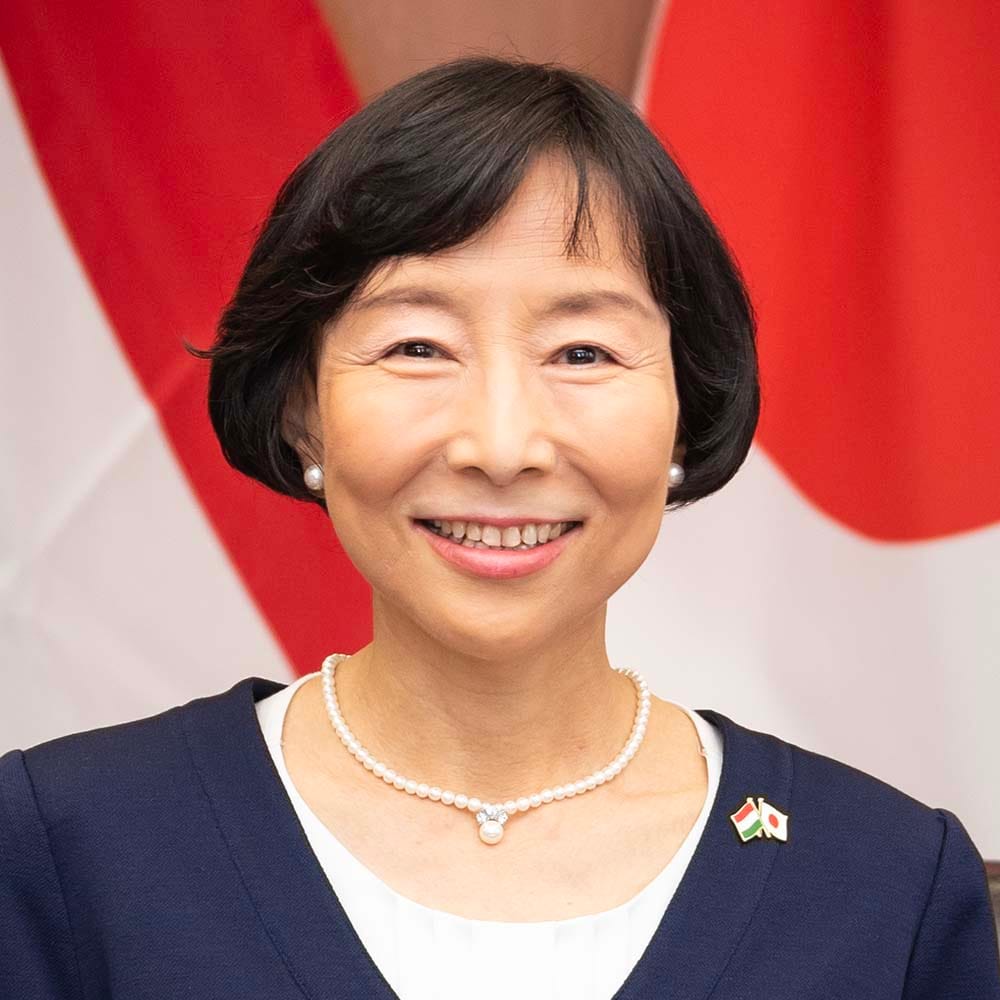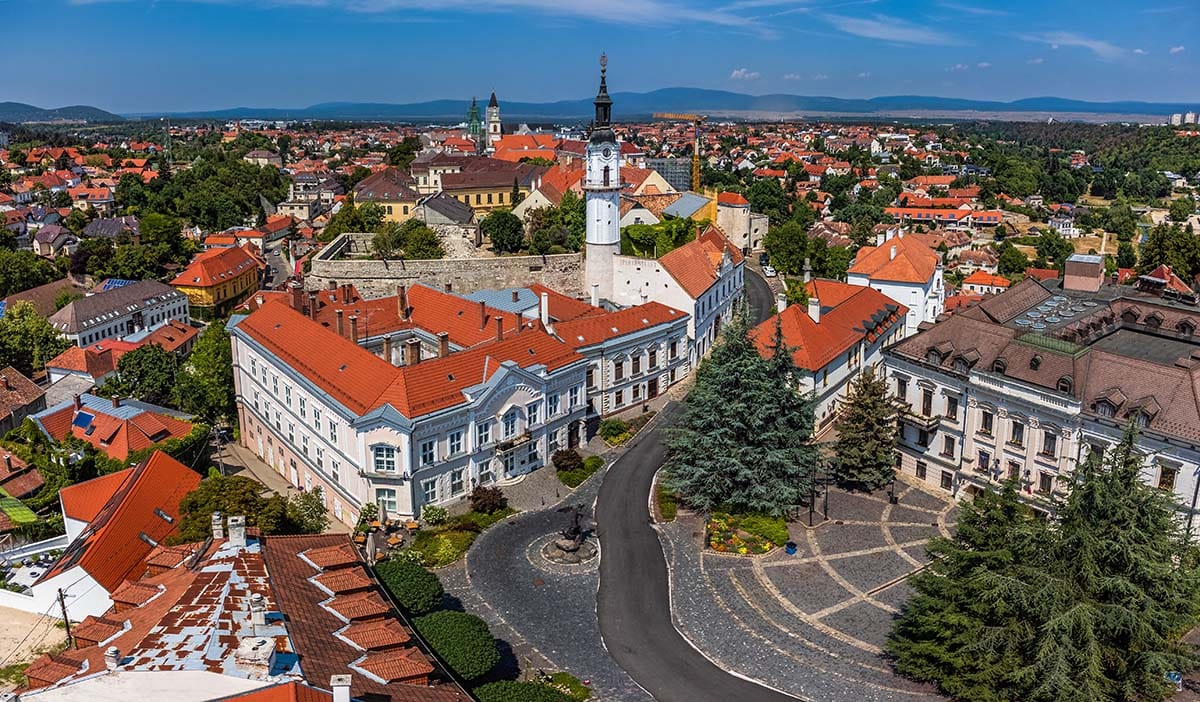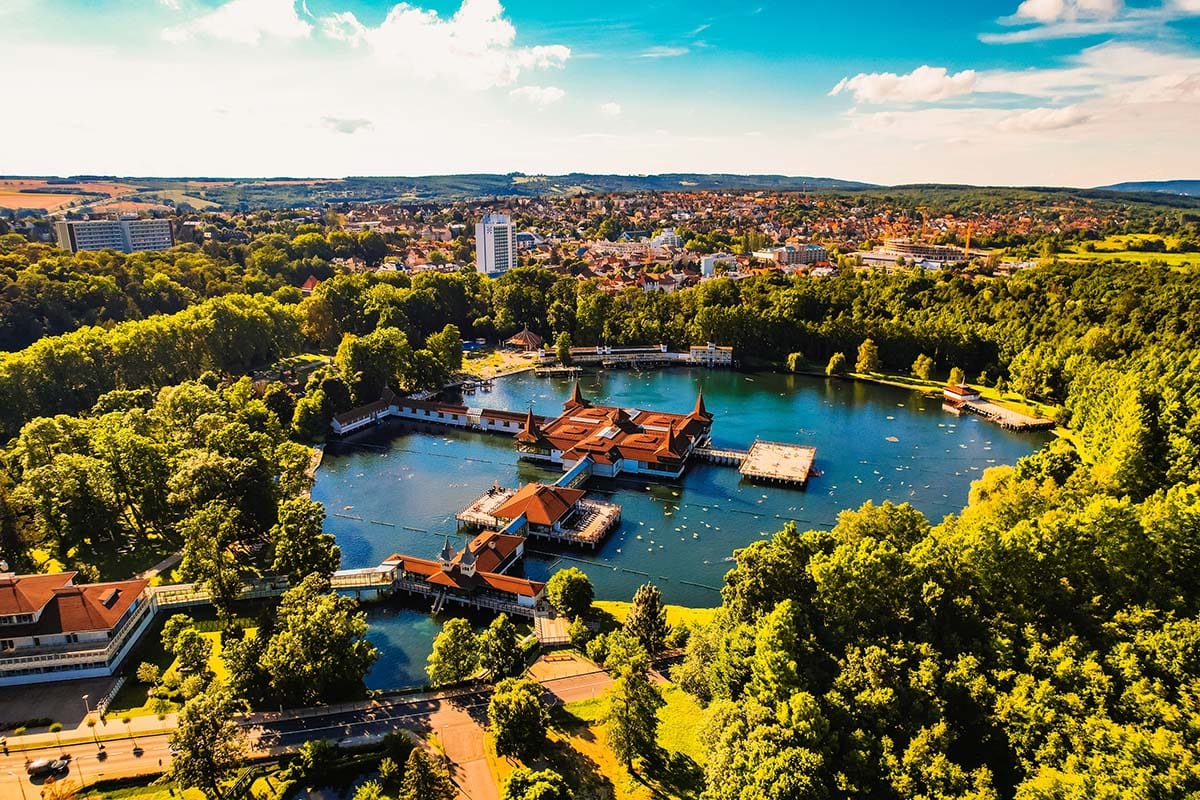H.E. Hikariko Ono, Japan’s Ambassador to Hungary, is on a mission to strengthen the deep and dynamic ties between the two nations. From cultural exchanges to economic partnerships, she champions initiatives that foster mutual understanding and collaboration. In this interview, Ambassador Ono discusses her vision for enhancing bilateral relations, the role of Japanese companies in Hungary’s growth, and the exciting opportunities that lie ahead for both countries.
Bridges: What’s your vision for strengthening Japanese-Hungarian relations during your time as Ambassador, and are there specific goals or initiatives you’re focusing on?
Ambassador Ono: Having arrived in Hungary about 6 months ago, I have observed that the Hungarian sentiment towards Japan is very positive. There are many fans of Japan here, and some people are involved in activities that really amazed me. For instance, in Budapest, there are people composing Haiku poems or practicing competitive Karuta (a traditional Japanese card game), and the similarly popular Kendo and Kyudo. The Hungarians who continue to lead these activities never cease to impress me. As an ambassador of Japan, one of my key roles is to support such people and work together with them to actively promote Japan.
In the economic field, Hungary has high expectations towards Japan, and Japanese companies also have strong interests in the Central and Eastern European region, including Hungary. As the Hungarian government actively supports the Japanese companies through subsidies and the Hungarian Investment Promotion Agency (HIPA), I believe that it is important for me to convey Hungary’s attractiveness as an investment destination for the Japanese business community. By working closely with organizations like the Japan External Trade Organization (JETRO) and the Japanese Chamber of Commerce in Hungary, and through collaboration and dialogue with the Hungarian government, I will strive to address the challenges faced by Japanese companies to improve the business environment for them. I believe that these joint efforts will lead to further investment by Japanese companies in Hungary and greater collaboration between our two business communities.
By working closely with organizations like the Japan External Trade Organization (JETRO) and the Japanese Chamber of Commerce in Hungary, and through collaboration and dialogue with the Hungarian government, I will strive to address the challenges faced by Japanese companies to improve the business environment for them.
Hikariko Ono, Japan’s Ambassador to Hungary
How do you see Japanese companies contributing to Hungary’s economic growth and the overall bilateral cooperation between our two countries?
In the early 1990s, shortly after Hungary’s regime change from communism, Magyar Suzuki began passenger car production, which was the first of its kind in Hungary. I am pleased and honored that Suzuki cars are referred to as “our cars” by the Hungarian people, and their trust in Japanese automobiles have been very strong. Currently, Magyar Suzuki and Toyota are competing for the top rank of new car sales in Hungary.
About 180 Japanese companies are active in Hungary, creating approximately 30,000 jobs. While many of these are automotive-related companies, there are also such sectors as food production and research and development. All these companies operate with a deep respect for Hungary and its people, and they are committed to integrating well into the local community.
Which sectors or industries in Hungary are currently drawing Japanese investment, and what future opportunities do you foresee?
Investment in the automotive sector continues to be significant. With the European Union discussion to impose stricter regulations on the sale of internal combustion engine vehicles after 2035, Hungary has been working hard to attract electric car manufacturers and battery producers in its bid to become a hub for electric vehicles. Several Japanese companies in the electric vehicle industry have already entered the Hungarian market, and I believe this trend will continue in the future.
In recent years, large-scale investment projects in the manufacturing industry have been underway in Hungary. Not only to labor-intensive FDI but also to capital-intensive FDI in Hungary should also be considered in the future. A Japanese company has already established a joint venture in Hungary for medical research, taking advantage of Hungary’s highly skilled workforce, and I welcome such initiatives.
Are there any recent or upcoming projects or events that showcase the growing ties between Japan and Hungary?
Hungary will open its own pavilion at Expo 2025 Osaka-Kansai, highlighting its rich cultural and culinary heritage. The pavilion will feature a dedicated space for business matchmaking, which I believe will foster valuable connections and collaborations between Hungarian and Japanese companies. The new Consulate of Hungary will open in Osaka later this year, which I believe will further facilitate exchanges between Japan and Hungary.
On the government side, Hungarian Minister of Foreign Affairs and Trade Péter Szijjártó visited Japan this May and held meetings with the Japanese Foreign Minister, the Minister of Economy, Trade and Industry, and the Minister of Land, Infrastructure, Transport and Tourism. High-level government consultations are essential not only for accelerating bilateral cooperation but also for fostering mutual understandings on key international issues and working towards their resolution. The Japanese government intends to continue exchanges with Hungary at various levels.
What trends or developments in the Hungarian market should Japanese investors be aware of, and how can they best take advantage of these opportunities?
Hungary is blessed with excellent human resources. I hope Japanese investors will continue to explore future investment opportunities in such sectors as research and development and startups.
Hungary is blessed with excellent human resources. I hope Japanese investors will continue to explore future investment opportunities in such sectors as research and development and startups.
Interests in Japanese food culture have been growing in Hungary, with sales of Japanese sake and scallops increasing significantly. The number of restaurants offering Japanese cuisine is also growing while many ingredients and dishes remain unfamiliar to the Hungarian consumer. This could offer significant opportunities for the food industry to introduce authentic Japanese ingredients, including high-quality Japanese food and increasingly sought-after sake.
Hungary provides excellent access to other European countries, and its prices and wages are competitive compared to those in Western Europe. Furthermore, Hungarian people have friendly and positive views of Japan. I am confident that Hungary is a country with many advantages for Japanese companies and would like to encourage Japanese investors to consider Hungary as a potential investment destination.







